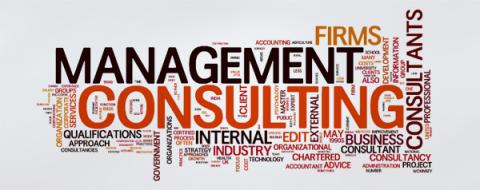More professional consultants?

Professor Daniel Muzio and Professor Ian Kirkpatrick, University of York
Professional-services firms need to have an ideology. They need to know what they stand for. They need to have nonnegotiable, minimum standards. They need to be able to say, ‘We will not accept work that goes against our standards, that’s not who we are’.
[Are All Consultants Corrupt?, Fast Company, May 2002]
These historical reflections by David Maister, in the aftermath of the Enron scandal, signal ongoing concerns about ethical standards and potential misconduct in management consultancy and are arguably still relevant today (Muzio et al., 2016). Indeed, despite their marked success as an occupation, consultants have been the object of sustained political and media criticisms, a number of demeaning insider exposes (Craig, 2005; Craig and Brookes, 2006) as well as the butt of many a joke. We argue that this situation is partly explained by a lack of professionalism in the sector. By this we refer to the relatively under-developed state of professional institutions that might ensure ‘nonnegotiable, minimum standards’. Of course, there are professional associations and qualifications linked to management consultancy but their role is marginal. Indeed, anyone can call them selves a management consultant; membership of professional associations is voluntary and limited, and enforcement of ethical standards often lacks teeth.
Historically, things had looked more promising. From the 1960s the IMC and the MCA had begun to develop a regulatory framework with increasingly stringent requirements in relation to membership and standards. These were designed to enhance the reputation of the profession, and in particular sought to improve the competencies of individual practitioners, manage conflict of interests (such as those between advice and implementation) and keep in check unduly aggressive commercial practices. This culminated in the introduction by the IMC of a formal curriculum and a professional qualification exam, on the example of traditional professions such as law and accountancy. Furthermore, professional membership density was much greater, perhaps as high as 50% of the profession. Yet from the early 80s large consultancy firms began to lose interest in the professionalisation of management consultancy and turned to their own internal processes, brands and qualifications as sources of validation and reputation. Our research shows that over the next three decades, to survive, professional associations have become more accommodating of corporate interests, broadening definitions of management consultancy, diluting standards and loosening enforcement.
Today the challenges of climate change and the post-lockdown economy make the skills of management consultants more urgent than ever. This comes at the time when, due to increasingly well publicised instances of professional misconduct, a general scepticism towards expertise and clamour for societal renewal, the reputation of the profession may be at an all time low. Most recently these concerns have been exaggerated by research highlighting the negative impact of management consulting services on efficiency in the National Health Service and the impact that consultants themselves appear to have on inflating demand for their advice (Kirkpatrick et al., 2018).
We contend that in these conditions management consultancy needs professionalism more than ever. While moves by larger firms to adopt ethical codes and signal their commitment to corporate social responsibility are a step in the right direction they fall short of what is required. More often than not, the responsibility to enforce these ethical standards is delegated to busy consultants, who have little encouragement or incentive to challenge their superiors, even when decisions appear to run against public interest (O’Mahoney, 2011). Instead, all practicing consultants, as well as their firms, should embrace an ideology and a code of professional practice which is defined and, if necessary, enforced independently. But how can this long-term aspiration be turned into a reality?
We ourselves do not have the perfect answer to this question, although it is clear that the granting of Chartered status to the Chartered Management Institute (CMI) in 2002 offers a major opportunity. Research conducted by the Professional Associations Research Network (Friedman, 2020) highlights the critical importance of Chartered status in raising technical standards and ‘promoting professionalism’. The Institute of Consulting (linked to the CMI) has already made progress by enhancing the quality and profile of its own certification. But more could follow in the aftermath of the Covid-19 crisis and the growing public expectation that businesses will act responsibly. Perhaps now is the time to further deepen relationships with the University sector, integrating professional certification with undergraduate and postgraduate degrees. Would it also be possible to work more closely with firms and the Management Consultancies Association, to look at ways in which their hiring and internal promotion practices can be adjusted to give greater recognition of professional certification?
Changing practice in this way may seem like a pipe dream, running against the preference of firms to focus on their own brands and reputations. But it is not. One only needs to look at the recent experience of other professional bodies, for example, human resources or project management, to see how Chartered status has galvanised a commitment to professionalism. To be sure, following this path may be harder in management consulting given the rapidly changing nature of the market and the business models of firms. However, these obstacles are not insurmountable and, we argue, must be overcome to restore public trust in management consulting and ensure its future sustainability.
References
Friedman, A. (2020) Promoting Professionalism, Bristol: PARN.
Kirkpatrick, I., Sturdy, A., Reguera, N. and Blanco-Oliver, A. and Veronesi, G., (2019) ‘The impact of management consultants on public service efficiency’, Policy and Politics, 47, 1, 77-95.
Muzio, D., J. R. Faulconbridge, C. Gabbioneta, and R. Greenwood (2016) “Bad barrels and bad cellars: A ‘boundaries’ perspective on professional misconduct.” In D. Palmer, K. Smith-Crowe, and R. Greenwood (eds.), Organizational wrongdoing: Key perspectives and new directions: 141-175. Cambridge: Cambridge University Press.
O’Mahoney, J. (2011) “Advisory anxieties: Ethical individualisation in the UK consulting industry.” Journal of Business Ethics, 104: 101–113.